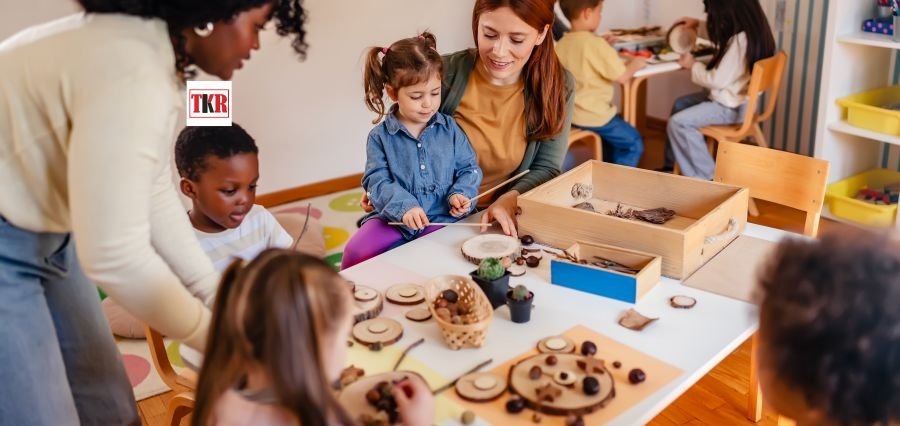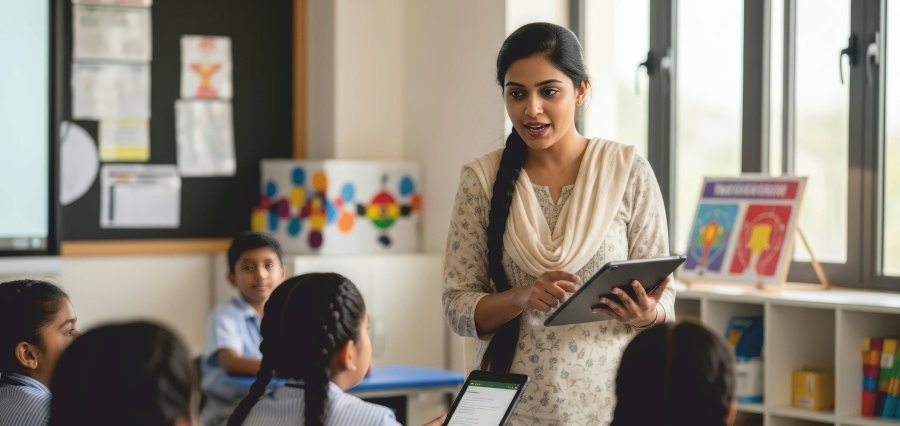The Science of Early Learning
The preschool stage is one of the most effective in the life of a child. These are the formative years, during which the child acquires the basic skills in language, social interaction, problem solving and emotional regulation. As teachers, it is critical to learn the science of early learning to be able to create an environment that allows children to grow, develop curiosity, and keep learning throughout their lives. This guide to preschool education identifies several important principles and strategies that can assist teachers working with young learners.
Reasons why Preschool Education is important
The early years of education have been referred to as a critical period in the development of the child’s brain. It has been found that at around the age of five, the child’s brain has almost attained 90% of its adult size. The neural links developed during this period have a direct impact on the way children think, learn and react to their environment.
Preschool education of high quality is not only about academic preparation. It develops social-emotional intelligence, resilience and creativity. Those who attend properly organised preschools are more prepared to start primary education and show better long-term results in terms of literacy, numeracy, and social skills.
Basic Concepts of Early Learning
When supported with evidence-based principles, educators can help preschoolers the most:
Play-Based Learning
The language of young children is play. Children are playing with building blocks, acting out their parts, or having adventures in the outside world. Play-based learning helps to build flexibility of thought, problem-solving, and imagination. Both structured and unstructured play need to be part of everyday life.
Social-Emotional Development
The toddlers are being taught how to share, cooperate, and control emotions. Teachers play a crucial role in demonstrating empathy, conflict management, and the development of a safe environment where children feel that they are appreciated. The creation of trust and good relationships is equally important as learning the ABCs.
The Language and Literacy Foundations
Early literacy is more than drilling letters; it is creating a fervour of stories, conversation and expression. Reading aloud, singing, and fostering storytelling contribute to children broadening their vocabulary, understanding and communicative capabilities.
Hands-On Exploration
Children are best taught when they are able to touch, experiment, and ask why. Tasks such as gardening, sensory play and more basic science experiments can catalyse curiosity and thinking.
Routine and Structure
An ordered classroom will create a sense of safety and assurance. Time spent playing, sleeping, in groups, and during individual exploration allows children to flourish.
Strategies for Educators
Preschool teachers may employ the following practical strategies in order to apply the science of early learning:
Create a Rich Learning Environment: Classrooms should be bright, interactive and rich in objects that can inspire curiosity, like books, puzzles, art materials, and natural objects.
Add Multisensory Activities: Young children are taught how to look, feel, listen, and move. The use of music, movement and practical crafts makes learning interesting.
Encourage the Good: Redirection, encouragement with consistent expectations, and help children develop self-control.
Involve Families: The early childhood teacher involves the parents and the caregivers of the child. Involving them in the learning process, informing them about the progress and showing them the materials will enhance the home-school bond.
Differentiation Learning: Each child is different. Diversity of activities and approaches will help promote inclusivity and address unmet learning needs.
The Educator’s Role
Preschool teachers are instructors, mentors and role models. The experience in the classroom is predetermined by their patience, ingenuity, and observation of the needs of children. Teachers encourage a lifetime learning process by creating curiosity, goodwill, and exploration.
Summing Up
This preschool instructional guide underscores the fact that instruction to youngsters is a science and an art. By adopting research-based strategies and play-based learning, social-emotional support, language-rich learning and family engagement, the educators will have well-rounded, confident learners. The preschool years form a golden period, and when correctly directed, teachers may influence every child at least to some extent.





